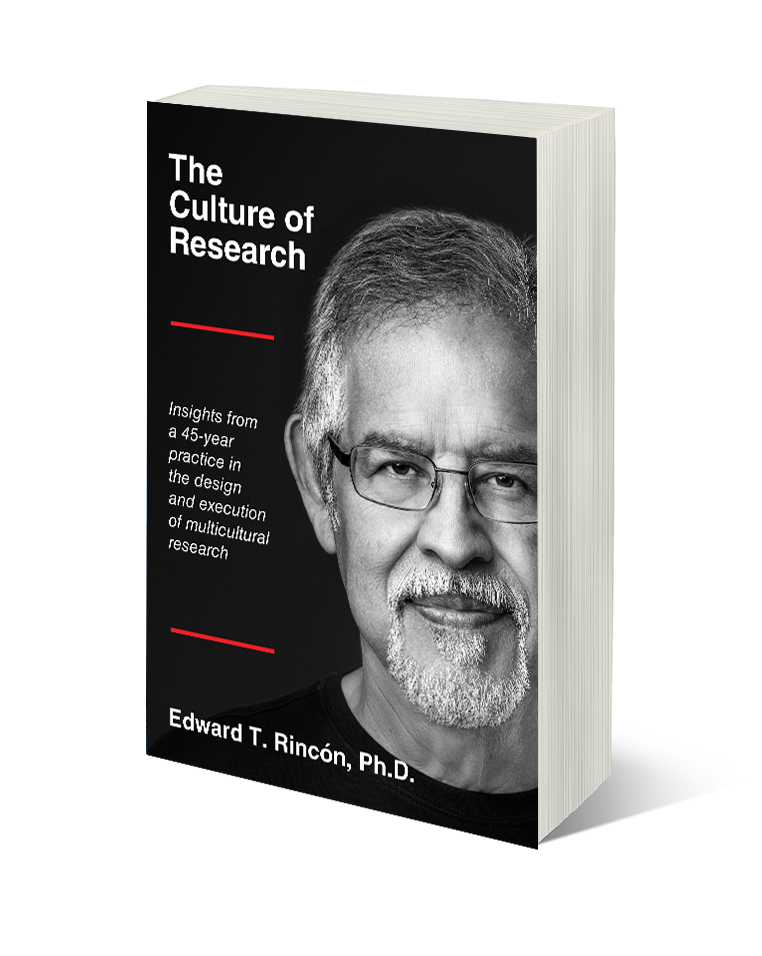
The Culture of Research
The Culture of Research

Let’s face it — multicultural research is difficult to do. Research practitioners face tough choices concerning the best methodology to utilize in studies of U.S. Blacks, Hispanics and Asians. Despite the rapidly changing demographic composition of the U.S. population, our research industry has been slow to adapt their practices to these changing demographics. The result? A disturbing number of multicultural research studies include identifiable biases, lower data quality, and low response rates that undermine decisions regarding key programs and policies. Equally disturbing is the corresponding trend by procurement staff that fund these questionable studies by research vendors with little experience in multicultural communities. The goal of this book is to make the difficult easier. The Culture of Research is a needed addition to the acumen of a research industry with historically limited resources to guide the design and execution of multicultural research. Edward T. Rincón, a research psychologist and recognized expert in studies of U.S. multicultural populations, has taught research and statistics courses at several academic institutions and conducted studies for many of the nation’s private and public corporations – thus bringing an academic and practitioner’s point of view that is uncommon in traditional research publications. Using a forensic analytics approach, Dr. Rincón uses his expertise to identify anomalies in the research or measurement process that impact the quality of life for multicultural communities, including mass media, redlining practices, educational testing, crime analysis, site location analysis, trademark infringement, and political polling. While the forensic analytics approach searches for potential explanations of questionable results, it is also used to praise studies that utilize high methodological standards in their studies of multicultural populations. Several of these studies are discussed throughout the book. The Culture of Research does not dwell on the fundamental concepts of conducting research, but rather focuses on the common pitfalls that are likely to be encountered in the design and execution of a multicultural research study. These pitfalls include decisions related to research design, identifying and sampling multicultural populations, adaptation and translation of survey instruments, the limitations of traditional data collection methods, data analytic considerations, the intuitive appeal of mixed mode methods, the value of GIS applications, use of incentives, and the unwanted compromises introduced by procurement decision-makers.Readers will find four additional resources that are useful. For example, the book includes tables from the most recent American Community Survey for 2018 that describe the presence of multicultural populations in the U.S., while selected demographic tables are discussed throughout the book that illustrate the various ways in which Census data are used in the planning, sampling, and analysis of multicultural surveys. Secondly, we have added a chapter on special problems associated with focus groups and multicultural populations. Thirdly, the reader will find our chapter on GIS applications quite interesting in understanding the environments where multicultural communities reside. Lastly, our chapter on procurement practices discusses the various ways in which purchasing staff undermine the quality of multicultural research. In summary, the book is a recommended companion to instructors and students in traditional research courses like business, sociology, political science, marketing, advertising, economics, mass media and psychology; research practitioners who design and execute multicultural research studies; procurement staff that design the specifications for multicultural research; and other individuals who use the results of multicultural research studies for decision making.
